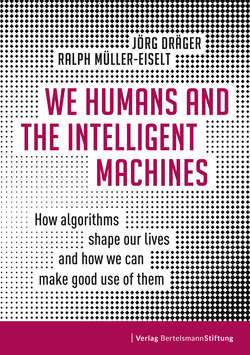Читать книгу We Humans and the Intelligent Machines - Jörg Dräger - Страница 20
На сайте Литреса книга снята с продажи.
4Algorithms make mistakes
Оглавление“Computers are useless. They can only give you answers.” 1
Pablo Picasso (1881–1973)
“The computer says no.” It is one of the running gags in the popular British television show Little Britain. The idea is always the same: A customer approaches Carol, an office worker, with a request and is rejected. Sometimes the scene takes place in a travel agency, sometimes in a doctor’s office, sometimes in a bank. No matter what the customer wants, whether to book a vacation, make an appointment or open an account, “The computer says no” is inevitably the answer after Carol types in the relevant query.
She is so grumpy that the problem is completely obvious: It is not the computer, but Carol’s foul mood. Perhaps she lacks the skill to fulfil the customer’s request; she is, in any event, completely unwilling to be helpful. To prevent this from becoming an issue, she blames the computer. As if to say “Sorry, nothing I can do,” every request or complaint bounces off her, no matter how convincing or affecting it might be.
The situation that the British series parodied at the beginning of the 2000s can still be found in today’s world, since, together with incompetent, unthinking or unethical users, algorithmic systems like Carol’s computer sometimes produce unwanted, unfair and inappropriate results.
The following six stories from very different areas illustrate when, where and why algorithms can be wrong. And they show how serious the consequences can be. They also give an initial idea of what we have to do or stop doing in order ensure algorithms actually serve society.
